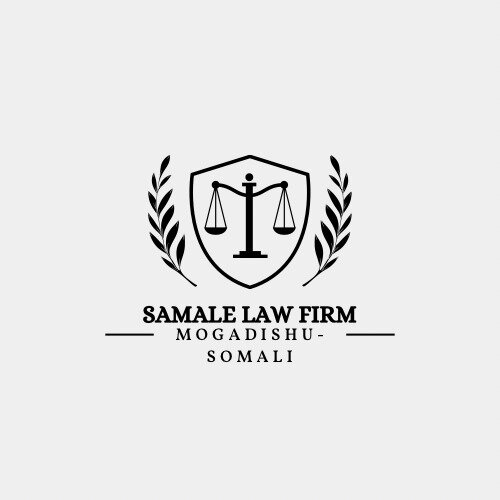Best Housing, Construction & Development Lawyers in Somalia
Share your needs with us, get contacted by law firms.
Free. Takes 2 min.
Free Guide to Hiring a Real Estate Lawyer
Or refine your search by selecting a city:
List of the best lawyers in Somalia
About Housing, Construction & Development Law in Somalia
Housing, construction, and development in Somalia encompass a vital sector contributing to the country's infrastructure and economic growth. The legal landscape in this field includes regulations addressing land ownership, construction permits, zoning, and urban planning. As Somalia continues to rebuild and develop post-conflict, these laws aim to ensure orderly development, legal compliance, and protection of individual and collective property rights.
Why You May Need a Lawyer
Engaging a lawyer specialized in housing, construction, and development law is crucial in various scenarios:
- Land Ownership Disputes: Conflicts may arise over ownership rights, requiring legal intervention to resolve.
- Construction Contracts: Lawyers help draft, review, and negotiate construction contracts, safeguarding your interests.
- Compliance Issues: Navigating the regulatory framework, including obtaining necessary permits and adhering to zoning laws.
- Development Projects: Legal advice is vital for project approvals, environmental assessments, and stakeholder agreements.
- Tenant and Landlord Disputes: Legal support in resolving disputes related to rental agreements, evictions, and tenant rights.
Local Laws Overview
Understanding the local legal framework is vital for anyone involved in housing, construction, and development in Somalia:
- Land Laws: Govern the acquisition, transfer, and ownership of land, crucial for determining rights and responsibilities.
- Construction Regulations: Include building codes, safety standards, and requirements for obtaining construction permits.
- Zoning Laws: Dictate land use, impacting how properties can be developed or used for residential, commercial, or industrial purposes.
- Environmental Laws: Address the impact of development on the environment, including necessary impact assessments.
- Urban Planning: Regulate urban growth, ensuring sustainable and organized development of cities and towns.
Frequently Asked Questions
What is the process for acquiring land in Somalia?
The process involves verifying ownership through existing documentation, negotiating a purchase agreement, and obtaining legal title through the appropriate governmental authorities.
How can I resolve a dispute over land ownership?
Resolving land disputes typically involves legal mediation or, if necessary, litigation. A lawyer can help assess documentation and represent your case in court.
What permits are required for construction projects?
Construction permits vary by region but may include building permits, environmental approvals, and compliance with local zoning regulations.
What should I include in a construction contract?
Key elements of a construction contract include project scope, timeline, payment terms, responsibilities, and dispute resolution mechanisms.
How do zoning laws affect my construction project?
Zoning laws dictate how land can be used and developed, impacting aspects like building size, height, usage, and density.
Are there specific laws for urban development projects?
Yes, urban development projects must comply with local urban planning, infrastructure, and environmental laws, among others.
What are my rights as a tenant under Somali law?
Tenants have rights regarding the habitability of rental properties, receipt of notice before eviction, and protection against unlawful rent increases.
Can a tenant be evicted without notice in Somalia?
No, tenants are typically entitled to a notice period, and evictions must follow legal procedures and grounds as specified in tenancy laws.
How can environmental laws affect my development project?
Development projects must undergo environmental impact assessments to minimize detrimental environmental effects, influencing project design and implementation.
What legal remedies are available for construction defects?
Legal remedies include demanding repairs, compensation, or, if necessary, pursuing litigation for breach of contract or negligence against responsible parties.
Additional Resources
For further assistance, consider reaching out to the following resources:
- Somalia Ministry of Public Works, Reconstruction, and Housing: Provides guidelines and policies related to construction and housing development.
- Local Government Offices: Offer insights into zoning, permits, and local compliance requirements.
- Legal Aid Organizations: Provide legal services and advice for individuals unable to afford private counsel.
Next Steps
If you need legal assistance in the field of housing, construction, and development, consider these next steps:
- Consult a Lawyer: Seek out a lawyer specializing in housing and construction law for specific advice and representation.
- Research Local Laws: Familiarize yourself with relevant regulations and guidelines to better understand your legal standing.
- Keep Records: Maintain organized documentation of all transactions, communications, and agreements for legal purposes.
Engaging a qualified lawyer and staying informed about your rights and responsibilities can significantly impact your success in housing, construction, and development projects in Somalia.
Lawzana helps you find the best lawyers and law firms in Somalia through a curated and pre-screened list of qualified legal professionals. Our platform offers rankings and detailed profiles of attorneys and law firms, allowing you to compare based on practice areas, including Housing, Construction & Development, experience, and client feedback.
Each profile includes a description of the firm's areas of practice, client reviews, team members and partners, year of establishment, spoken languages, office locations, contact information, social media presence, and any published articles or resources. Most firms on our platform speak English and are experienced in both local and international legal matters.
Get a quote from top-rated law firms in Somalia — quickly, securely, and without unnecessary hassle.
Disclaimer:
The information provided on this page is for general informational purposes only and does not constitute legal advice. While we strive to ensure the accuracy and relevance of the content, legal information may change over time, and interpretations of the law can vary. You should always consult with a qualified legal professional for advice specific to your situation.
We disclaim all liability for actions taken or not taken based on the content of this page. If you believe any information is incorrect or outdated, please contact us, and we will review and update it where appropriate.
Browse housing, construction & development law firms by city in Somalia
Refine your search by selecting a city.









